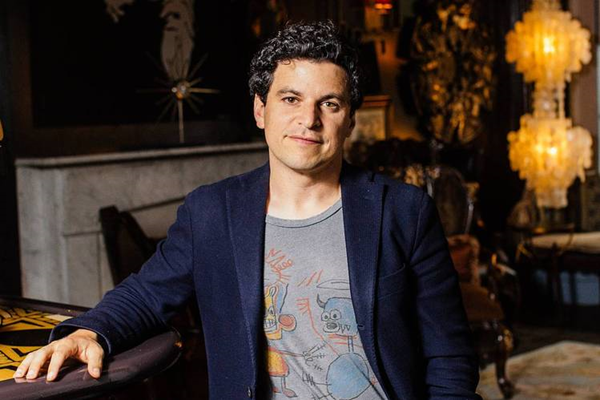THE
WALL STREET JOURNAL.
Markets
BlackRock Backs a Startup to Find Out What Young Investors Want
Acorns Grow works by
rounding up the amount of a user’s credit-card purchase and
investing the change
|

Acorns CEO Noah Kerner PHOTO:
MICHAEL BUCHER/THE WALL STREET JOURNAL |
By
Peter Rudegeair and
Sarah Krouse
May 9, 2018 8:28 a.m. ET
The world’s biggest money
manager is buying a stake in a startup that invests its users’ pocket
change, reinforcing a broader push by
BlackRock Inc. to serve individual investors.
The investment in
Acorns Grow Inc., part of a $50 million fundraising round that BlackRock is
leading, is expected to be announced Wednesday, according to the two companies.
It is using its own money instead of client funds for the investment. BlackRock
manages $6.3 trillion in assets.
The Acorns stake is part of a larger strategy to broaden
BlackRock’s appeal beyond big institutions to individuals and wealth managers.
Because BlackRock does not sell mutual funds or exchange-traded
funds directly to retail investors, as rivals Vanguard Group and Fidelity
Investments do, BlackRock lacks direct access to information about how
individuals choose to invest over time and what younger people prefer when it
comes to digital apps.
“We’ll get a better sense of the behaviors of this up-and-coming
segment of the world,” said BlackRock Chief Operating Officer Rob Goldstein in
an interview. The money manager won’t get access to Acorns’ customer data as
part of the deal.
Acorns is a financial-technology firm that allows customers with
balances as small as $5 to invest in groups of funds based on their risk
tolerance. Users link their debit- or credit-card accounts to Acorns, and the
firm rounds up the users’ purchases to the nearest dollar and invests the change
on their behalf.
Since its founding in 2012, Acorns
has raised around $100 million in venture capital from investors including
Bain Capital Ventures, Greycroft Partners and PayPal Holdings Inc., which
integrated its smartphone apps with Acorns’ last year.
BlackRock and Acorns also plan to partner on new investment
options, pre-made clusters of exchange-traded funds called model portfolios and
educational material on good financial habits. BlackRock sells risk and
portfolio management technology called Aladdin to a growing number of firms
across Wall Street, including wealth advisers.
BlackRock Chief Executive Laurence Fink has said the New York
firm has a goal of having a third of its revenue being
“enabled by technology” in the coming years.
Acorns and other so-called robo advisers have become an
increasingly popular tool among young savers looking for simple ways to invest
as they gather assets. Consulting firm Aite Group expects the number of
customers investing through such advisers will rise to 17 million by 2021, from
1.8 million in 2016.
As of April, Acorns managed $803.7 million in assets across 1.9
million investment accounts in the U.S., according to its most recent regulatory
filings. The company also counts more than one million users who have opened an
account but have yet to invest through it.
The Acorns investment could help inform BlackRock’s efforts to
draw in more business from networks of wealth managers. As part of the
investment, BlackRock
Chief Marketing Officer Frank Cooper will have rights to observe Acorns’
board meetings.
Acorns CEO Noah Kerner said in an interview that the capital
infusion will help the startup expand more aggressively than it otherwise would
have. Last month, it started offering individual retirement accounts to its
users.
Two of the seven ETFs that Acorns includes in its portfolios are
run by BlackRock, while the remainder are run by Vanguard. That could grow over
time, executives for the two firms said, adding that they may also partner to
create new funds.
Acorns is
not the first robo adviser in which BlackRock has invested. In 2015, it
purchased San Francisco-based FutureAdvisor, wrapping some of its technology
into BlackRock’s wealth management tech push. That service, which previously
sold funds directly to consumers though an app, no longer does.
Corrections & Amplifications
The chief executive of Acorns is Noah Kerner. An earlier version of this article
incorrectly stated his last name.
Write to
Peter Rudegeair at
Peter.Rudegeair@wsj.com and Sarah Krouse at
sarah.krouse@wsj.com